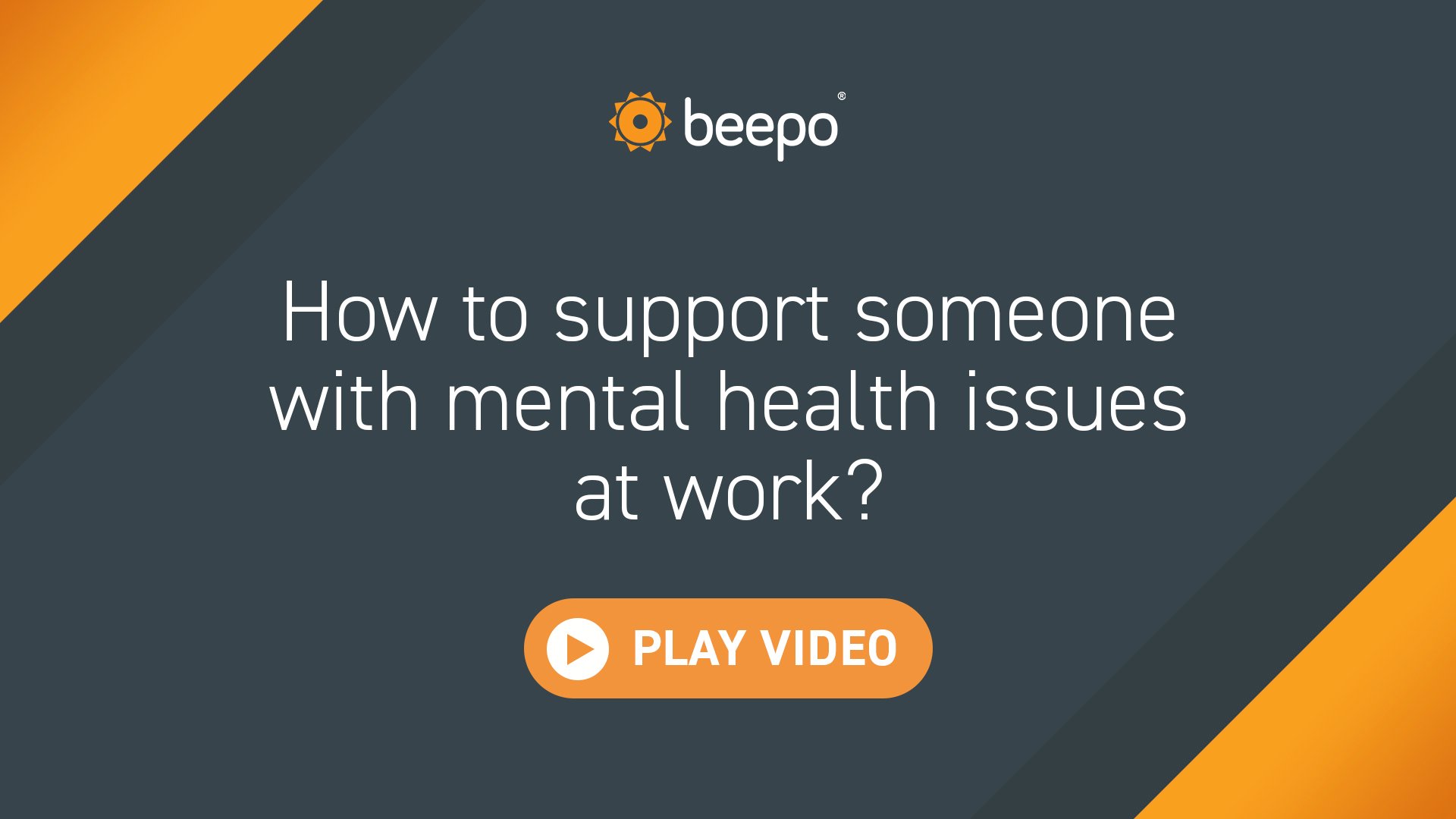The results of the American Psychological Association’s 2022 Work and Well-being Survey reveal that seven in 10 workers (71%) believe their employer is more concerned about the mental health of employees now than in the past1.
Mental health is an important issue that affects us all and the workplace is no exception. In today's fast-paced and constantly connected world, the demands of work can take a toll on our mental well-being. Stress, burnout, and anxiety are becoming increasingly common among employees and it's important that employers and employees alike take steps to address this issue.
Mental health in the workplace is not only a moral responsibility, but it's also essential for the productivity and success of a business. Research shows that any investment in identifying and supporting workers with mental health issues produces close to a 500% return in improved productivity2.
In this blog, we will explore the importance of mental health at work, the causes of poor mental health and strategies for improving mental health in the workplace.
What is mental health in the workplace?
The World Health Organisation defines mental health as “a state of well-being in which every individual realises his or her own potential, can cope with the normal stresses of life, can work productively and fruitfully and is able to make a contribution to her or his community.”3
Mental health in the workplace refers to the emotional, psychological, and social well-being of employees in their work environment. This includes issues such as stress, burnout, anxiety and depression, as well as the policies and practices that businesses have in place to support the mental well-being of their employees. It also includes the culture of the workplace and how it affects the mental health of employees.
Mental health is a growing concern in today's society and statistics tell the story of both the prevalence and impact of mental health issues on both individuals and in the workplace. Take the following statistics sourced from a survey by Blackdog Institute4:
- One in six workers suffer from mental illness
- Approximately 17% of employees suffer from poor mental health symptoms such as stress, insomnia and fatigue, affecting their ability to function at work
- Mental health conditions cost Australian businesses almost $11 billion each year
- 50% of managers believe no one in their workplace experiences mental health issues.
Why is mental health at work important?
Mental health at work is important for a number of reasons:
- Good mental health enables individuals to fully engage in their work, which can lead to increased productivity and job satisfaction.
- A positive work environment that supports mental health can attract and retain employees, which can be beneficial for businesses experiencing difficulty recruiting talent.
- Mental health issues such as stress, burnout and depression can have a negative impact on employee well-being and can lead to absenteeism, which can be costly for businesses.
However, how many businesses understand the importance of mental health at work? In Beyond Blue’s ‘State of Workplace Mental Health in Australia’ report, they state that “mentally healthy workplaces are as important to Australian employees as physically safe workplaces, however, workplaces are not meeting their expectations.”5
Here are some eye-opening statistics surrounding employee mental health from the Beyond Blue report:

When mental health actually becomes a priority at a workplace, employees' self-reported absenteeism as a result of experiencing mental ill-health is as low as 13%. In addition, 65% of employees believe business leaders who focus on mental health in the workplace inspire respect among workers.
What causes poor mental health at work?
There are several factors that can contribute to poor mental health at work, including:
- High job demands
- Lack of autonomy
- Poor employee/supervisor relationships
- Lack of social support
- Job insecurity
- Inadequate work-life balance or mental health support.
It's important to note that these are not the only causes, and different individuals may have different reasons for their poor mental health at work. More than 43.7% of Australian employees have experienced a mental disorder in their lifetime6.
It's also worth noting that mental health conditions such as depression and anxiety may also be independent of work and may be a pre-existing condition or triggered by personal or family reasons.

How to support someone with mental health issues at work
Supporting someone with mental health at work can be challenging, but there are several things you can do to help:
- Be understanding and empathetic
- Encourage them to seek help
- Be a good listener
- Be flexible and open to work adjustments
- Raise awareness
- Respect boundaries
- Educate yourself.
It's important to remember that mental health is a complex issue and that each person's needs are different. Supporting someone with mental health at work should be done with sensitivity and care, and always with the individual's needs and preferences in mind.
How to improve mental health at work?
Improving mental health at work is a collective effort that involves the participation of employees, management and the business as a whole. Here are some ways to improve mental health at work.
Strategies for improving mental health at work
As an employee, check out the following strategies you can use to improve your own mental wellbeing while at work:
- Prioritise self-care: Make time for activities that help you relax and recharge, such as exercise, meditation, or hobbies.
- Create a positive work-life balance: Set boundaries between work and personal life and make sure you are taking enough time for yourself and your loved ones.
- Speak up about your mental health: Don't be afraid to talk to your manager or HR representative about your mental health and any accommodations you may need.
- Take breaks: Take regular breaks throughout the day to rest your mind and body.
- Learn stress-management techniques: Practice relaxation techniques such as deep breathing, yoga, or mindfulness.
- Seek professional help if needed: If you feel that your mental health is affecting your work, seek professional help, such as a therapist or counsellor.
It's important to remember that everyone is different, and what works for one person may not work for another. It's important to find a strategy that works for you and that you're comfortable with.
The role of employers in promoting mental health
Here are some strategies that employers can use to improve mental health at work:
- Create a positive work culture: Foster an open and supportive work environment where employees feel comfortable discussing mental health issues.
- Promote work-life balance: Provide flexible working arrangements and encourage employees to take time off when needed.
- Provide mental health support: Offer Employee Assistance Programs (EAPs) or access to counselling services for employees.
- Train managers and supervisors: Provide training for managers and supervisors on how to recognise and support employees with mental health issues.
- Lead by example: Model good mental health practices and encourage open discussion of mental health within the business.
- Support accommodations: Be open to providing accommodations for employees with mental health issues, such as flexible working hours or changes to their role.
- Monitor and address stressors: Regularly assess the work environment and identify and address any factors that may be contributing to stress or poor mental health among employees.
- Be proactive: Regularly review and update the organisation's mental health policies and procedures to ensure they are effective and in line with current best practices.
- Encourage open communication: Encourage employees to speak up about their mental health and create a culture where people feel comfortable discussing their mental health.
It's important to remember that mental health is not just an individual problem, it's also a collective responsibility. Employers have a role to play in creating a culture and environment that promotes mental well-being and support employees to maintain good mental health.
Mental health in the workplace is a critical issue that affects the well-being of employees and the productivity of the business. It's important for employees and employers to work together to create a positive work environment that promotes mental well-being. Remember that mental health is a journey and it's important to check on yourself and others regularly, and don't hesitate to ask for help when needed.
References:
1 Work and Well-being survey reports
2 A critical equation: balancing Australian worker health and company wealth
3 Mental health strengthening our response
4 Workplace Mental Health Toolkit
5 State of Workplace Mental Health in Australia
6 Study paints picture of mental disorders in Australia














































.jpg?width=299&height=196&name=Mega%20Menu_FAQs%20(1).jpg)








